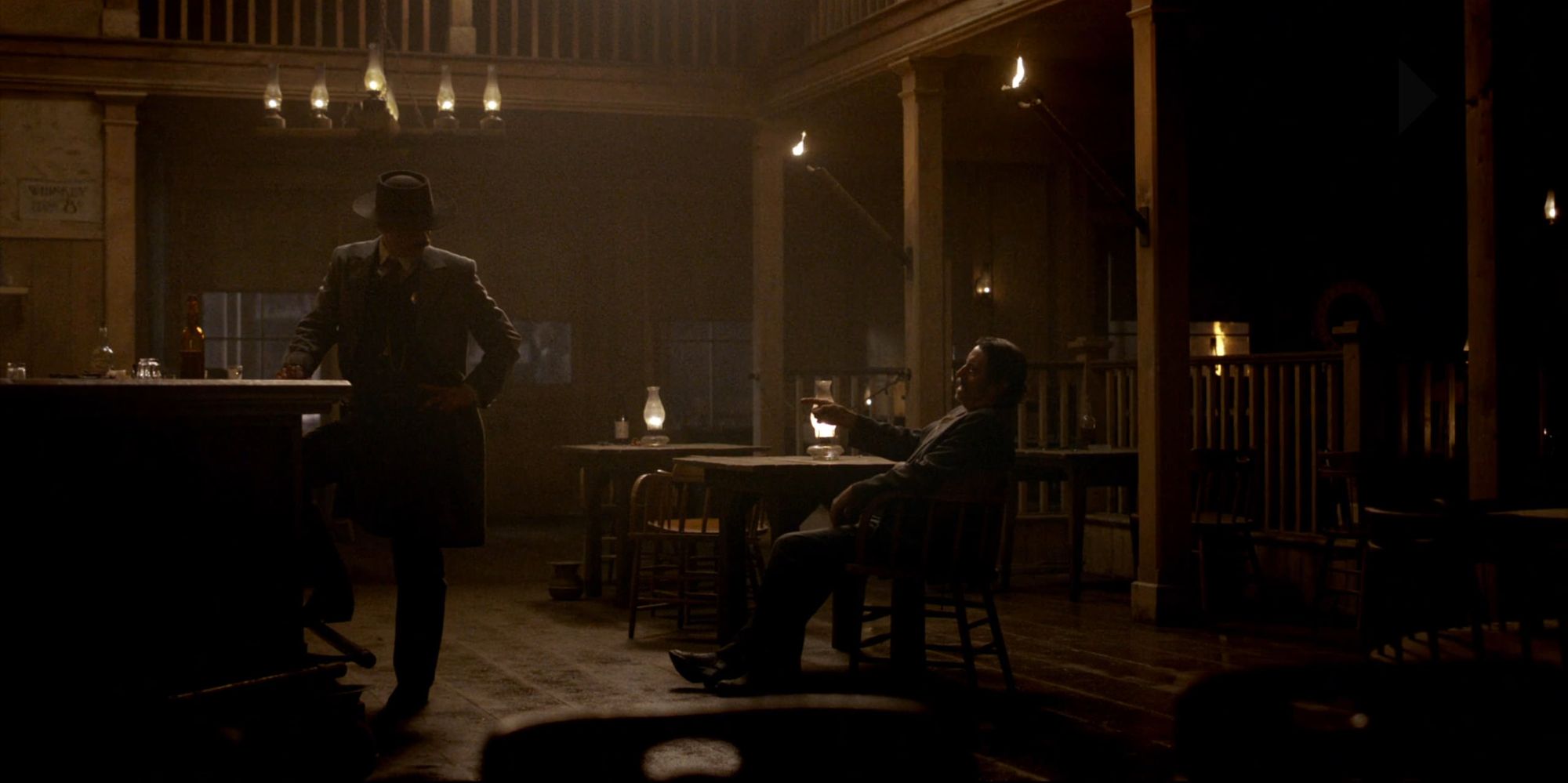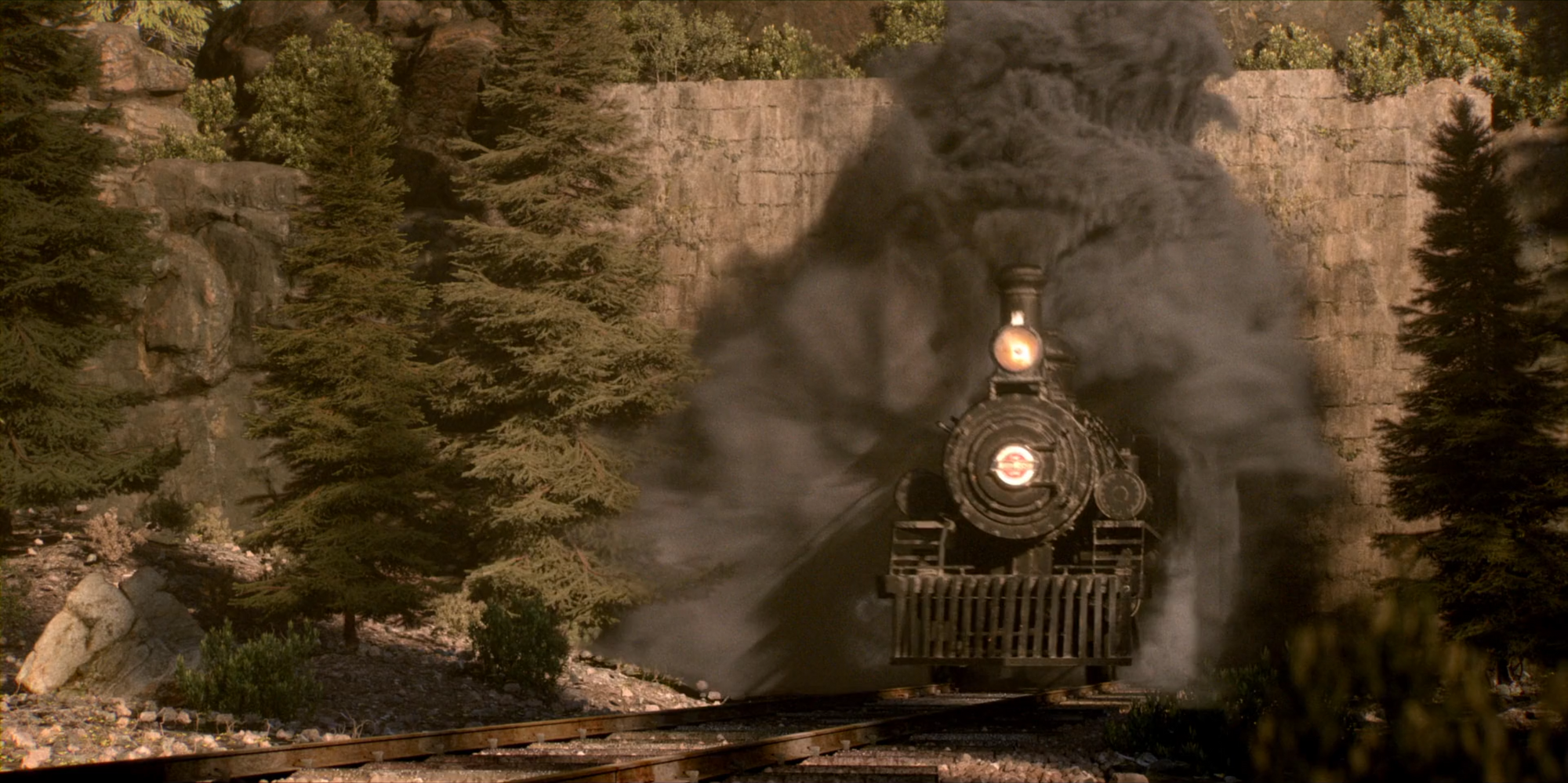‘Deadwood: The Movie (2019)’ Review
Almost thirteen years after the series ended, David Milch delivers a fitting finale for one of the best TV shows of recent history

Almost thirteen years after the series, David Milch & company deliver a fitting finale for what has become recognised, over the intervening years, as one of the finest shows in television history. This film, which premiered on HBO rather than in the cinema, though it has all the qualities necessary to draw on the big screen, completes a story that reached an all-too-abrupt ending last time out. If Deadwood was a magnum-sized bottle of whiskey, this is the cork stopper. And a magnificent cork stopper it is.

Series creator David Milch was diagnosed with Alzheimer’s disease shortly before he began working on the script, and the viewer could be forgiven for making a connection between this real world event and the wistful, heartfelt, and beautiful acceptance of ageing, death, and human frailty the film's narrative is inflected by and occupied with.
The film is a meditation on the effects of time. Of seeing the final stop ahead, and making the necessary preparations to end life in a manner befitting the way it was lived. This focus on time and ageing, as well as tying in perfectly with the decade-plus gap between series finale and film, lends the narrative a tight focus and coherent tone.
Thirteen years after we last saw them, we rejoin many of Deadwood's inhabitants at a different stage in life. Al Swearengen, in particular, still nominally running The Gem Saloon, shows the marks of time's weather. Doc Cochran, still about his business around camp, is at the end of his tether, struggling to convince Al to quit drinking spirits as liver failure sets in. Mr. Wu is offering Chinese medicine, unprompted, to improve his complexion.
Many characters are haunted by memories from the past. The only device used to catch the new viewer up to speed on the camp's history is brief and almost supernatural, dream-like flashbacks of key moments from the series when circumstances force them back into a character's mind. It is a concise way to convey important information from the series' history, briefly and with impact. It works terrifically, with the soundtrack imparting a haunting, not-quite-real effect on these flashback shots that calls to mind David Lynch.
A core message contained in the narrative relates to the power one success standing up against evil has, even much further down the line when it rears its head again. The return of George Hearst to camp is the key plot point, and despite the enormous power advantage he wields over the town — he is now a U.S. Senator, and by all appearances more powerful than ever —, the past success of the camp against him bolster them, turning them into a force able to put up a valiant fight. Mrs. Ellsworth in particular captures the essence of this concept: it is only her success standing up against Hearst last time, which led to her inheriting a gold mine, that makes her able to contribute to the fight second time round.
At its heart the message is one of the power of the community, and its ability to fight forces much larger than it, whether corporate or governmental. It is also a simpler message of the importance of standing up and resisting oppressive forces of violence and corruption on the individual level, and how consequential doing so, or not, can be.
The character of Hearst is magnificently portrayed, and in new clothing — he now brands himself a "man of the future," contrary to his previous self-characterisation as "the boy the Earth speaks to" — we can see him for what he is more clearly than before: the personification of an elemental force of evil, playing whatever cards circumstance hands him in order to wield power. As before, he uses violence whenever the direct application of capital doesn't clear a smooth path ahead.
One of the hallmarks of a great film is when there are too many rich and complex threads of meaning, powerful moments, subtle themes, and terrific performances to sum up in any review of practical length. Deadwood: The Movie matches that description. And so I will abandon any attempt to account for all the qualities of this film. Just know that it excels in more ways than should be possible, in the performance of a task quite unreasonable to expect success in: the resuscitation of an incredible story told almost 15 years previous, re-connecting perfectly with a narrative flight path that was never mapped out.
To end the review without mentioning the performances, which are phenomenal, would be remiss. At the same time, highlighting one or two performances wouldn't capture the spirit of the thing. Each of the major characters that return (and almost all of them do) are given full and captivating performances, often with subtle and inspired adjustments that show the effects time has had on their personalities since we saw them last. These performances are more than simple reprisals, and as well as lending extra layers to the nature of each character we could not see before, go some way towards filling in the gap of time between series and film. What transpired over those years can be pieced together by the viewer in broad strokes — reverse engineered from seeing how each character ended up, and how they interact with one another now. It is a brilliant addition of meaning through performance I can't remember seeing before.
More than anything, the performances across the cast show a level of emotional commitment rarely seen on screen — either to the roles they are performing, or the world they are portraying. It is as if, for many of the actors, their character has come to mean something more than an artistic performance. That they have put so much into them that they have in effect come to represent a part of who they are, and the world of Deadwood has become a meaningful part of their lives.
Poetically, this impression is given some veracity by one of the few roles that could not be reprised in the film. Powers Boothe, who played the role of Cy Tolliver in the series, one of the big swinging dicks running the camp alongside Al Swearengen, died from the effects of pancreatic cancer in 2017. Boothe was buried in his home state of Texas, in a small unincorporated community that happens to share its name with a certain city in South Dakota with a rich historical past: Deadwood Cemetery, Deadwood.
James Lanternman writes movie reviews, essays, and moonlit thoughts. You can reach him at [email protected].
Previously… Review: Us (2019)
